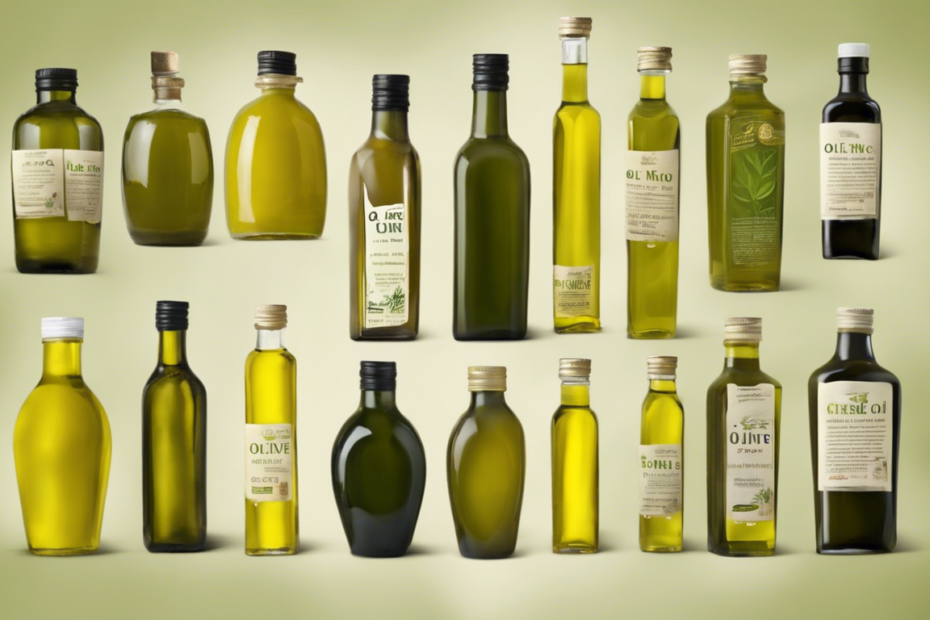Olive oil is often celebrated as a kitchen staple, but amidst the praise, many myths and misconceptions linger.
In this article, we aim to set the record straight by debunking common olive oil myths and sharing essential facts that every consumer should be aware of.
From understanding what makes quality olive oil to exploring its health benefits, we’ve got you covered with the truth behind the bottle!
Key Takeaways
- Many common beliefs about olive oil are misconceptions that can mislead consumers.
- Understanding how to identify high-quality olive oil is crucial for maximizing its benefits.
- Not all olive oils are created equal; factors like origin, production methods, and packaging matter.
- Olive oil has a variety of health benefits, but it’s important to know which claims are backed by research.
- Educating yourself about olive oil can enhance your cooking and health choices dramatically.
Common Myths About Olive Oil
There are plenty of olive oil myths and facts swirling around that can leave you scratching your head, especially when it comes to what to drizzle over your salad or use for cooking.
One common myth is that all olive oils are pure and of high quality; in reality, there are significant differences, and not all brands are created equal.
Many people believe that light olive oil is lower in calories compared to extra virgin, but that’s just a clever marketing tactic—light refers to flavor, not calories.
On the health side, some think olive oil is not suitable for high-heat cooking, but extra virgin olive oil can actually withstand quite a bit of heat while retaining its health properties.
Plus, it’s packed with antioxidants and healthy fats, making it a powerhouse for heart health.
So next time you’re browsing the oil aisle, remember these olive oil myths and facts to make a more informed choice!
Essential Facts to Understand Quality Olive Oil
When it comes to olive oil, there are plenty of olive oil myths and facts that can make your head spin!
First off, many people believe all olive oils are the same, but that’s far from true; there’s a dramatic difference between refined and extra virgin olive oil, with the latter being the crème de la crème when it comes to flavor and health benefits, as it retains the most nutrients from the olive fruit.
Another common misconception is that olive oil isn’t suitable for cooking because it has a low smoke point, but actually, quality extra virgin olive oil can handle moderate heat, making it a great option not only for drizzling over salads but also for sautéing and even baking!
Plus, let’s not forget about its incredible health perks—loaded with monounsaturated fats, antioxidants, and anti-inflammatory properties, olive oil can be a heart-healthy choice that adds a touch of Mediterranean magic to your meals.
So next time you pour that golden goodness, remember that separating fact from fiction can really enhance both your cooking and health!
‘Don’t believe everything you hear, but do believe what you taste.’ – Unknown
Health Benefits and Misconceptions of Olive Oil
When it comes to olive oil, there are plenty of olive oil myths and facts floating around that can leave you a bit confused.
First off, let’s clear one thing up: not all olive oils are created equal.
While extra virgin olive oil is loaded with antioxidants and healthy monounsaturated fats that can benefit heart health and reduce inflammation, cheaper oils often lack these nutrients and might even be blended with less healthy oils.
A common myth is that olive oil isn’t good for cooking because it has a low smoke point, but in reality, it’s quite versatile and can handle moderate heat without losing its benefits.
Additionally, some folks think that because it’s oil, it should be avoided for weight loss, but when used in moderation, olive oil can actually help in maintaining a healthy weight thanks to its satiating qualities.
So, next time you drizzle some olive oil on your salad, remember that it’s not just tasty, it’s a nutritious choice too!
Frequently Asked Questions
What are some common myths about olive oil?
Some common myths include that all olive oils are the same, that extra virgin olive oil is always the healthiest option, and that olive oil can’t be heated or used for frying.
How can I determine the quality of olive oil?
Quality olive oil can be determined by checking for certifications, looking for the harvest date on the bottle, and ensuring it comes from a reputable source or region known for olive oil production.
Is it true that olive oil has health benefits?
Yes, olive oil is rich in monounsaturated fats, antioxidants, and anti-inflammatory compounds, which can promote heart health and reduce the risk of chronic diseases when used as part of a balanced diet.
What misconceptions should I be aware of regarding olive oil?
One common misconception is that lighter-colored or flavored olive oils are of higher quality, while in reality, the color and flavor can vary without affecting the oil’s quality or health benefits.
Can I use olive oil for cooking at high temperatures?
Yes, many varieties of olive oil, including extra virgin olive oil, can withstand moderate heat cooking methods.
However, for high-heat cooking, you may want to use refined olive oil or other oils with a higher smoke point.
